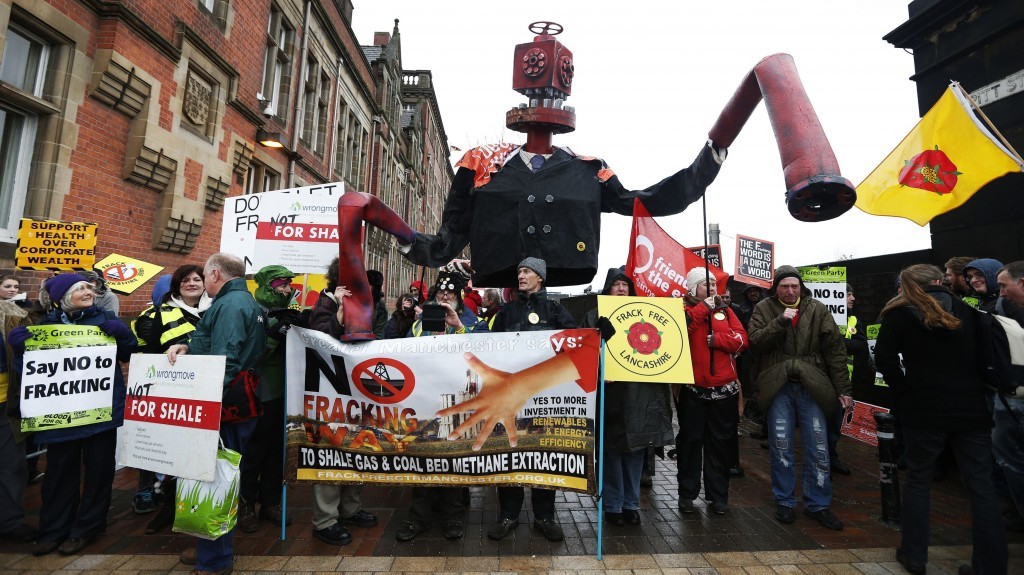
Opposition to fracking has risen with more than a third of people against the process, a Government survey suggests.
Concern over earthquakes caused by the process has also jumped in the past three months, the poll found, as the first fracking in seven years got under way in Lancashire.
The latest round of the Business Department’s public attitudes tracker, which quizzed 4,273 households in December, shows 35% were opposed to fracking, up from 31% in September.
Just 13% supported fracking for shale gas, a slight decrease from 15% in September, while just under half – 47% – neither supported or opposed it, largely because they did not know enough about it, the findings suggested.
Support for hydraulic fracturing, which extracts gas from shale rock deep underground, has seen a general downward trend since the survey began in December 2013, while opposition has grown.
In the latest survey, support for the process is back down to its lowest level, last seen in September 2017, while opposition is close to the highs of 36% seen in same period.
The most common reason people have for opposing fracking is the loss or destruction of the natural environment, which more than six in 10 (62%) were worried about.
Concern over the risk of earthquakes was the second most common reason for opposition, rising from 26% in September to 40% in the latest poll.
Fracking restarted in the UK last autumn in Lancashire after it was suspended in 2011 following two earthquakes in the Blackpool area.
After energy firm Cuadrilla began fracking at Preston New Road in October, work had to be halted on several occasions because tremors above regulated limits were detected.
Cuadrilla and another energy company, Ineos, which also hopes to frack in the UK, have called for regulations to be relaxed to allow them to exploit shale gas reserves.
The Government has indicated it does not plan to alter the rules.
Dr Doug Parr, chief scientist at Greenpeace UK, said: “Fracking’s low and declining popularity is a very real and practical problem for the industry.
“They say they need the Government to weaken safety regulations, on top of removing home-owners’ property rights and local democratic control, and the Government isn’t going to want to do many more big favours for a loss-making industry that people want to fail.
“Ministers should put together a proper energy strategy based on the renewable technologies that are getting ever cheaper and enjoy strong public support.”